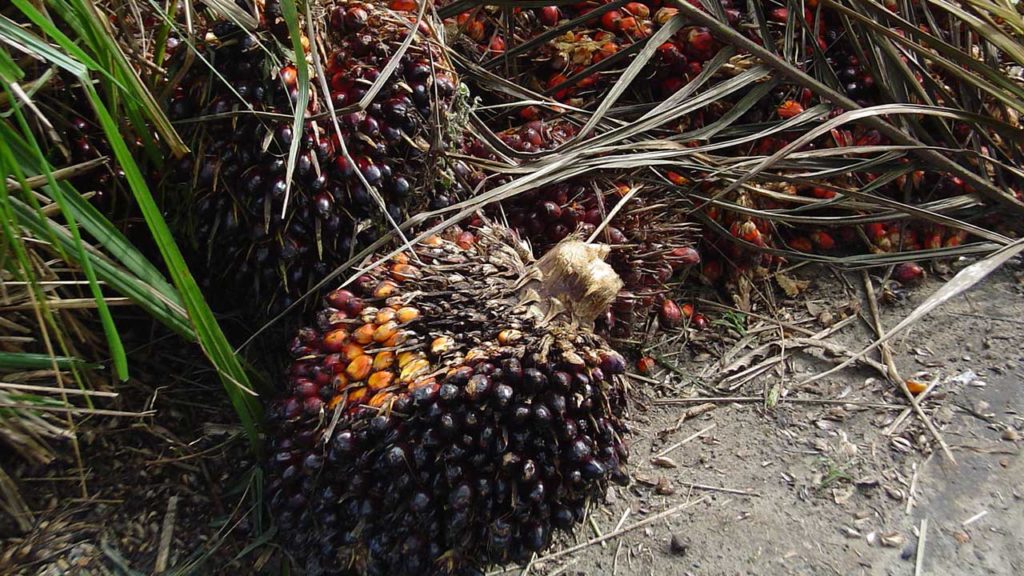Indians don’t just eat but worship the food on their plates. On any occasion, despite the vibe, food is the only thing that is irreplaceable. When it comes to amazing and varied types of food across the world, human beings have a lot to acknowledge and be grateful for. However, there is a huge difference between consuming unhealthy and healthy food items. Almost every health issue is linked with the type of food habits a person carries. A healthy lifestyle mostly depends on the type of essential edible commodities we select for our family.
Having said that, let’s draw some attention to one of the most healthy, economic, and sustainable edible food commodities – Palm Oil, the world’s most consumed vegetable oil. Not many people would know but globally India is the second-largest consumer of palm oil. Palm Oil is found in nearly 50 percent of all household items which include food and non-food products. Due to its natural preservative quality, it is vastly used in the food processing industry- biscuits, frying, bakery, ready-to-cook cake mixes, butter, ready-to-eat foods, and quick-cooking foods. It is also used in non-food commodities- detergents, plastics, cosmetics, and biofuels. There are many industries and allied sectors (including crude oil processing units & FMCG) that rely heavily on imported palm oil and employ thousands of people.
Additionally, being the most versatile agri-commodity, palm oil plays a crucial role in contributing towards global food security and economic development due to its huge global demand and affordability. As we speak about healthy and nutritional food, equal distribution of food also becomes an additional critical aspect due to the global hunger issues that humankind faces. Unfortunately, not everyone is privileged to buy expensive nutritional food items on a regular basis to fulfill their daily needs, and so they starve, especially in developing nations. Therefore, palm oil becomes a part of global discussions on food security as it is one of the most salient, healthy, nutritious, affordable, accessible, and sustainable ingredients in the world.

Scientific studies conducted across the world time and again have shown that refined red palm oil has high contents of vitamins A and E which are beneficial for maintaining better heart and brain health. Palm oil carries an equal balance of saturated and unsaturated fatty acids, beta-carotene, and tocotrienols – a form of vitamin E. It is known, that from helping the cells communicate to keeping the immune system healthy, vitamin E plays an important role in the human body. Expert studies have shown that getting an adequate amount of vitamin E in the diet of human beings can reduce the risk of heart disease, certain forms of cancer, and age-related macular degeneration. Whereas the strong antioxidants present in palm oil help in combating stress and DNA damage.
According to the USDA’s Nutrient Database, one tablespoon of palm oil provides 120 calories, 14 grams of fat, including 7 grams of saturated fat (the same amount as in butter), 5 grams of heart-healthy monounsaturated fat and 1.5 grams of polyunsaturated fat. It also provides 2 mg of vitamin E and 1 mcg of vitamin K. In fact, the total trans-fat content in palm oil is minimum and less than 1 percent. In addition to that, ICMR- National Institute of Nutrition in Hyderabad, for the past few decades has emphasized that palm oil is not bad for the human heart. Due to its rich contents of vitamin A and E, red palm oil helps in preventing cancer, brain disease, aging; and treating malaria, high blood pressure, high cholesterol, and cyanide poisoning. Despite few claims of palm oil increasing cholesterol, most clinical studies have found that palm oil has a positive and protective effect on human heart health with the capability to reduce “bad” cholesterol and increase “good” cholesterol in human bodies. A controlled study in 1995 suggested that palm oil has the potential to help slow disease progression in people with established heart diseases.
While deliberating upon healthy and nutritional food, as is known, vitamin A deficiency is the most common and problematic issue especially in African and Southeast Asian countries which is subsequently caused by inadequate nutritional intake. The consumption of refined red palm oil assures in combating such hazardous deficiencies. According to the scientific pieces of evidence, refined red palm oil can reduce the risk of developing vitamin A deficiency if added to the diet of pregnant women and children. According to Harvard nutrition experts, palm oil is comparatively much better than high–trans-fat and butter. India ranks very low in terms of average nutrition intake with 75percent suffering from Vitamin deficiency, therefore consumption of moderate palm oil comprising the above-mentioned nutrients can help improve the situation.

The Food and Agriculture Organization (FAO) interprets the concept of survival as sustainable nutrition and extends it to the realm of food. The food that protects biodiversity, that is culturally accessible, economically fair, nutritionally adequate, and that has the capability to maximize human resources is considered sustainable in nature. Interestingly, palm oil is one such commodity that is sustainably cultivated and contains the required amount of nutrients to feed a larger population.
As we talk about sustainably produced food, a study by the International Union for Conservation of Nature (IUCN) stated that “Palm oil contributes to almost 40% of the current global edible oil supply despite occupying only around 5.5% of the total global oil crop area (between 21.5 and 23.4 million hectares), which is the least as compared to any other edible oil crops in the world.” These figures categorically show that palm oil is the most sustainable edible oil crop across the globe despite the misconceptions and bad propaganda spread around the commodity. It is one such commodity that is easily accessible to people from all sectors and classes due to its affordability aspect.
As the most versatile crop, oil palm is comparatively high-yielding in nature and economically beneficial to the small-holders or farmers due to its less land requirement. Reports have shown that the palm oil industry contributes to 11 SDGs and has been able to achieve 65% of the No Deforestation commitments, unlike other oil seeds that lag way behind, Soybean at 11%, Rapeseed, and Sunflower at 0%. Currently, palm oil is the only vegetable oil in the world, to have mandatory as well as voluntary sustainability certification programmes. It is in everyone’s interest, especially our consumers that other vegetable oils start following sustainability certification. With an ever-increasing human population, it is significant to address misinformation around beneficial commodities like palm oil and propagate accurate knowledge among consumers. Moving forward, there is a need to promote healthy and sustainable food culture to strengthen global food security and retaliate against hunger and malnourishment issues faced by mankind. Sustainable palm oil is the way forward for assuring healthy food on your plates.




